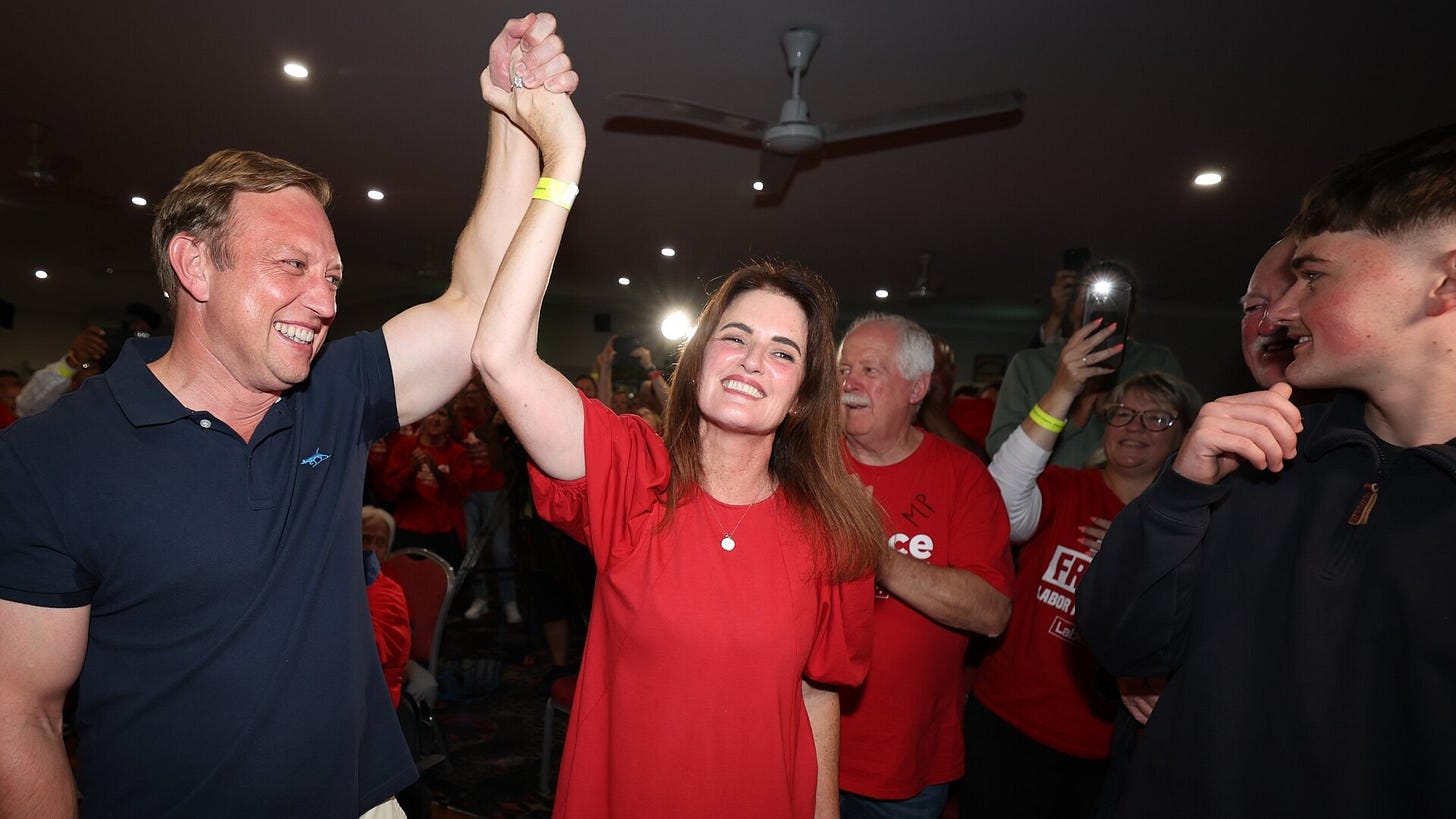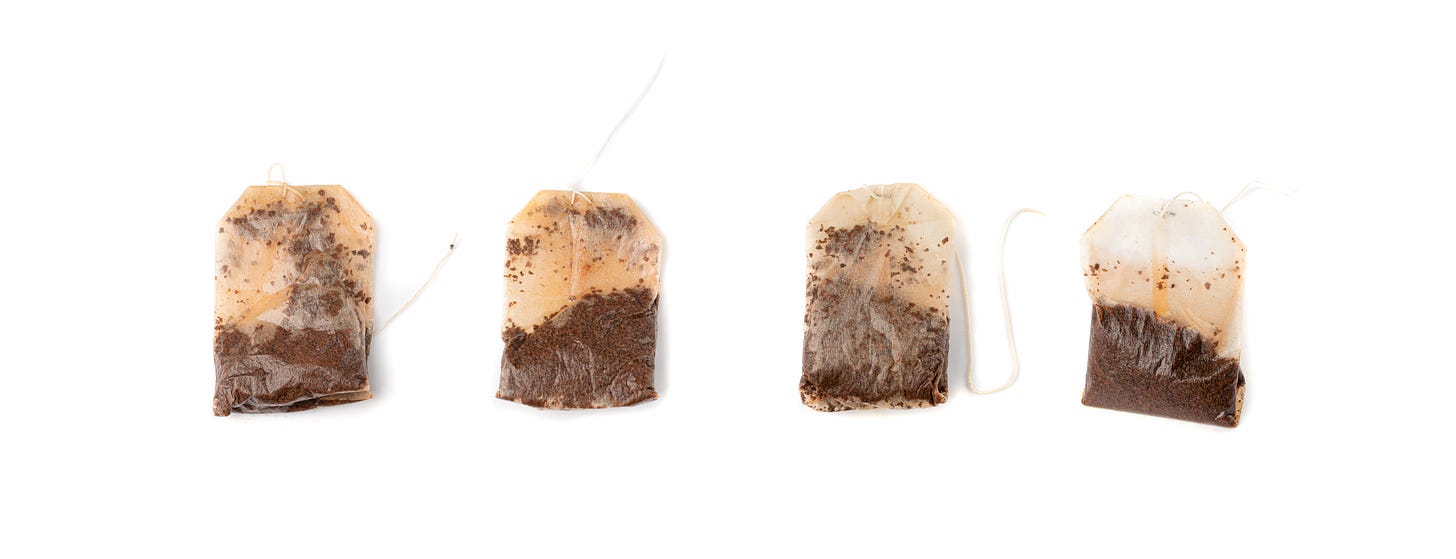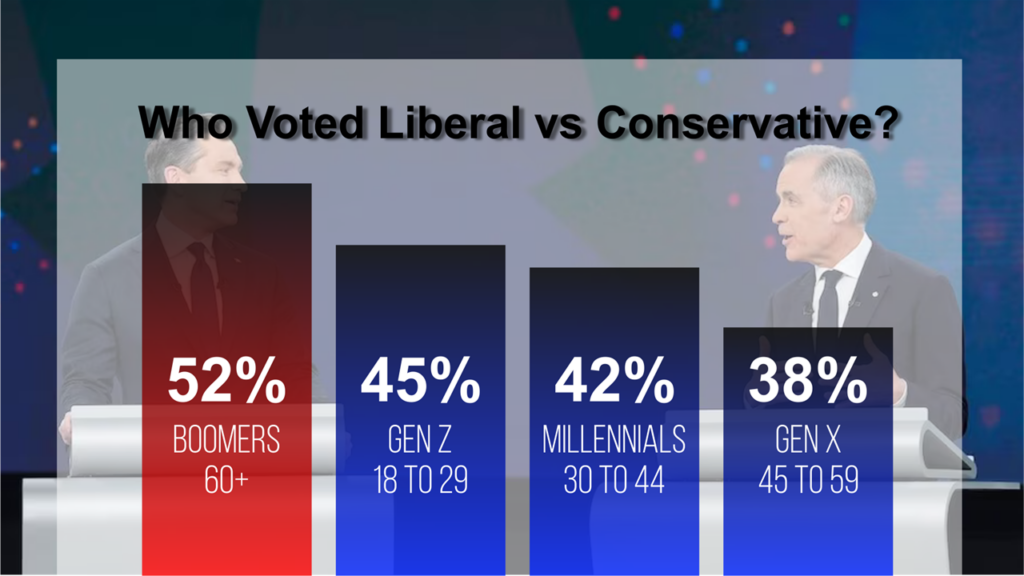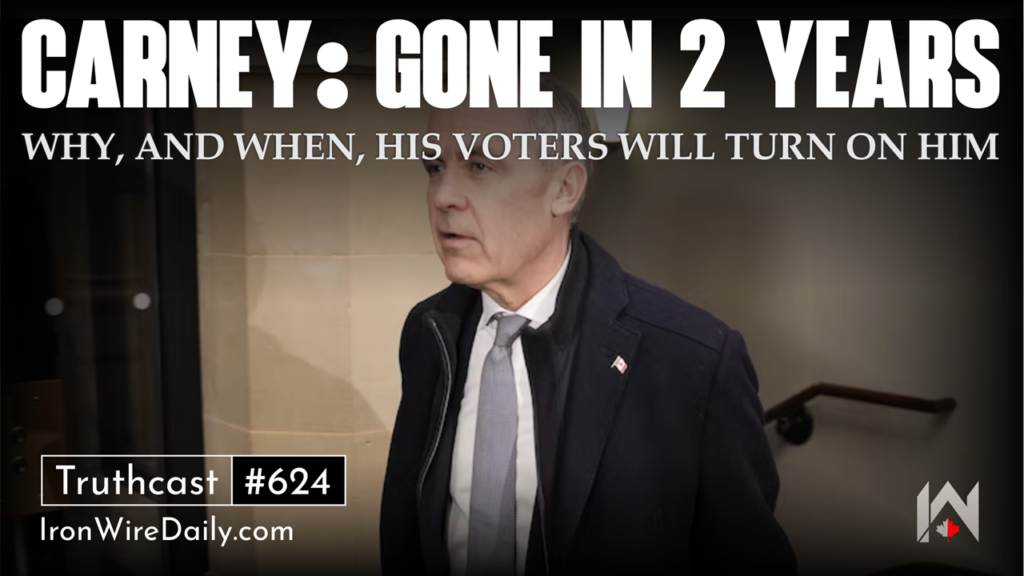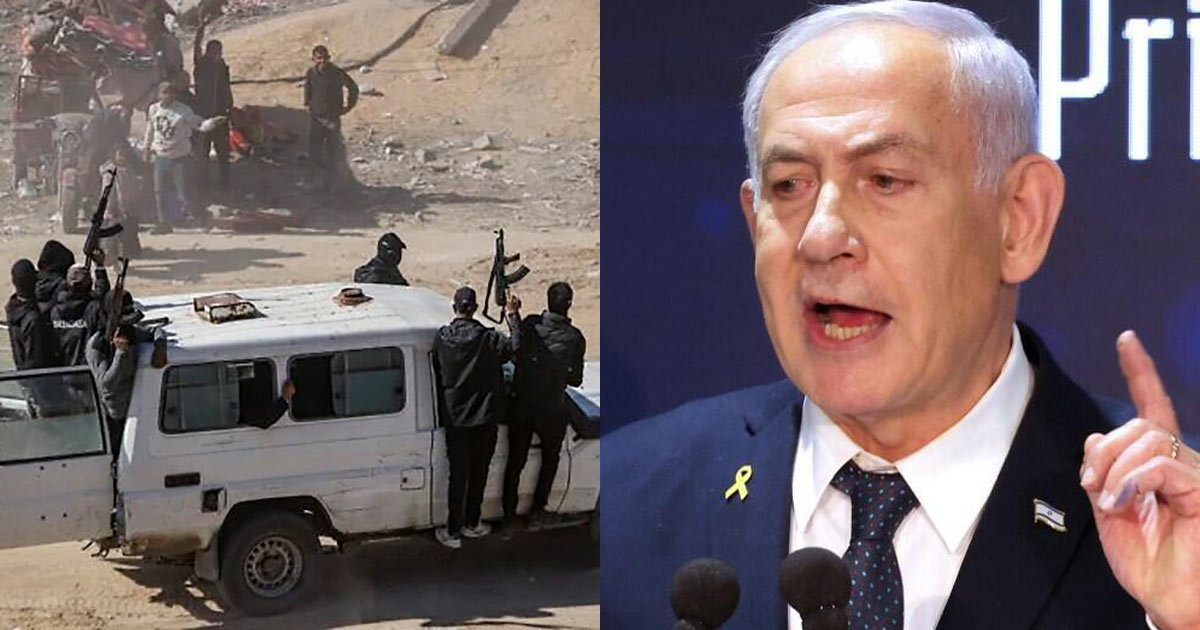Australia Elects Weak Tea Bag to Lead the Country – The Daily Sceptic

Given the choice between two weak tea bags, Australia elected a weak tea bag at the federal election over the weekend.
The result was not so much an affirmation of Anthony Albanese and his centre-Left Labour Party as it was a repudiation of a pathetic opposition, led by Voldemort look-a-like Peter Dutton, who, like Canada’s Pierre Poilievre, not only lost the election for the centre-Right Coalition, but also lost his seat.
In an election decided by Gen Z and Millennial voters whose main concerns were the rising cost of living and the ongoing shortage and unaffordability of housing, both parties were big on rhetoric but short on meaningful solutions beyond the short-term vote grab.
Labour’s win has been reported as a historic landslide victory, and indeed, the party has secured more seats than any other Labour government in history.
Quite the achievement for a leader whose net satisfaction rating was negative for the entire campaign, in a contest that turned out to be more about whom voters disliked the least than whom they liked the most.
However, with Australia’s preferential voting system, a party need only secure around a third of the primary vote (people’s first preference) to win big. At the last federal election, Labour won with the lowest primary vote ever, only 32.6% compared to the Coalition’s 35.7%.
This election cycle, about 35% of Australians voted for Labour, 3% more than the proportion of Aussies who voted for the Coalition (Liberal, Liberal National and National Parties).
The rest voted for the Left-wing Greens, independents (dominated by progressive Teals), and Right-wing Pauline Hanson’s One Nation. It was the preference flows from these candidates that decided the election outcome.
Coalition nosedive
So what went wrong for the Coalition? As late as February of this year, it was tipped to outperform Labour, but support for the opposition nosedived from there and never recovered as the election neared.
At baseline, Dutton is just that bit more unlikeable than Albo. Like Albo, he is a political animal, willing to deceive and play dirty, and to roll over when required. Unlike Albo, he displays no soft edges.
This didn’t stop people in Dutton’s electorate of Dickson in Queensland from electing him for over two decades, but his margin dropped to 1.7% at the 2022 election, when he became leader of the Liberal Party and of the opposition.
Over the weekend, Dutton was finally ousted by Labour’s Ali France on her third run for the seat of Dickson. An attractive 51 year-old para athlete and disability advocate who lost a child to leukaemia, France has all the personability and relatability that Dutton does not.
In the early stages of the federal campaign, Dutton’s unlikeability didn’t seem too big a problem, as he leaned into Trumpian rhetoric, talking tough on government efficiency and cutting migration. The strategy appeared to be that any indication of a backbone was enough to beat jellyfish Albo.
This approach looks to have backfired after US President Donald Trump’s first 100 days into his second term has given voters worldwide a sense of how a populist Right-wing government might behave once in power, precipitating Dutton’s rapidly declining support in recent months, and the ‘anti-Trump’ victory of Left-wing Mark Carney over conservative Poilievre in Canada.
Ironically, Trump has since said of the Australian election result that he is “very friendly” with Albanese, and, “I don’t know anything about the election other than the man that won, he’s very good”.
The Trump effect may be part of the explanation for the Coalition’s poor showing, but it also failed to mount and sustain a positive alternative vision for the country. As pointed out by fellow Perth-based Substacker Corey White, Dutton was not a ‘change’ candidate. He was Diet Coke to Albo’s Coke Zero.
Dutton’s embrace of nuclear energy was one of his few substantially differentiating policies, along with promised cuts to the public service. But would the status quo change in any meaningful way with a new conservative government? It did not seem so.
In the crucial final campaign week, Dutton resorted to petty culture-baiting over the Indigenous Welcome to Country, presumably hoping to tap into the success of 2023’s Voice referendum defeat, a cheap move that sucked precious voter attention from the issues that the Coalition might have been able to deliver on. At the same time, he failed to address culture issues that really matter to conservatives, like taking a stand on gender ideology.
Also, Albanese is nowhere near as unpopular as Joe Biden was at the end of his term. “He can string a sentence together and his son isn’t a degenerate crackhead criminal (although he does work for KPMG),” quipped White.
Australia’s homogeneous political landscape
Unlike the US or other countries with a strong populist alternative, Australia’s political options are essentially a uniparty with relatively few meaningful policy differences. This was no more evident than during Covid, when both major parties backed wholesale the trashing of our economy, nixing civil and human rights and blocking every effort to gain transparency and accountability.
Over the past 50 years or so, Aussie voters have been drifting away from the major parties, increasingly turning votes over to independents and minor parties. However, this has not yet translated to enough seats to significantly shake up the two-party hold on our Parliament, which means that despite neither party or leader being very popular, we keep voting them in.
Aside from the majors, two progressive climate-focused groups, the Greens and the Teals, absorb most of the alternative vote, with preferences from both flowing mainly to Labour (and vice versa).
Left-wing voters typically gravitate to the Greens, who have the benefit of being small enough to represent the progressive view on issues like climate, gender ideology, publicly-funded everything, Palestine and so on, without being beholden to stakeholders in the way that the majors are, but also hold enough seats to force a minority government to acquiesce on policy and legislation when their votes are needed.
The Teals, a quasi-party who are nominally independent but are almost all backed by wealthy businessman Simon Holmes à Court and his initiative Climate 200, gouged the conservative Coalition’s base in the previous federal election and continued to make ground in this one, capturing bougie urban voters who value sensible economic management but also want strong action on climate.
In the populist domain, there is no real alternative aside from One Nation, which, despite attracting 6.2% of the vote, has no lower house seats, but looks set to retain its two Senate seats and may even add a third.
The remainder of the Right-wing alternative vote is split amongst a smattering of small, undisciplined ‘cult of personality’ parties, with the exception of the Libertarians and Gerard Rennick’s People First Party, who are too small to make a difference at this stage, but are streets ahead of the others in terms of articulating well thought out positions on issues Australians care about.
Combined with One Nation, these Right-wing minor parties are colloquially called ‘freedom parties’ – there really are no Left-aligned parties that value freedom aside perhaps from the single-issue Legalise Cannabis Party, which secured just over 1% of the vote in this election.
Notably, the Coalition is not interested in the freedom vote, as demonstrated by the demotion of Senator Gerard Rennick and MP Russell Broadbent from the ticket after their vocal opposition to medical discrimination (vaccine mandates), among other authoritarian measures. Both Rennick and Broadbent contested this election (with the People First Party and as an independent, respectively), but neither won his seat.
The rotten tomato prize on the alt-Right goes to eccentric mining billionaire Clive Palmer’s Trumpet of Patriots party, for which Palmer reportedly spent up to $60 million on a Trump-esque campaign to “make Australia great again” that included spamming voters with unsolicited text messages promising to drastically cut immigration, build fast trains and double fees for foreign students.
Unsurprisingly, the party secured no seats, and I am left wondering if this is Palmer’s performance art. At the past two federal elections he threw over $200 million ($83 million in 2019 and $132 million in 2022) at campaigning for the United Australia Party, gaining only one Senate seat in 2022. As of yesterday, Palmer had reportedly announced that he will quit politics for good.
Given the choice between more of the same, or more of mostly the same but with a less likable front person, Australians have chosen more of the same.
Looking ahead, we can expect an ever-bloating public service, no real solutions to the cost of living and housing crises, further pandering to minority cohorts, over-regulation, continuation of the long march towards centralised globalist power networks, and plenty of kayfabe.
This article was originally published on Dystopian Down Under, Rebekah Barnett’s Substack newsletter. You can subscribe here.
